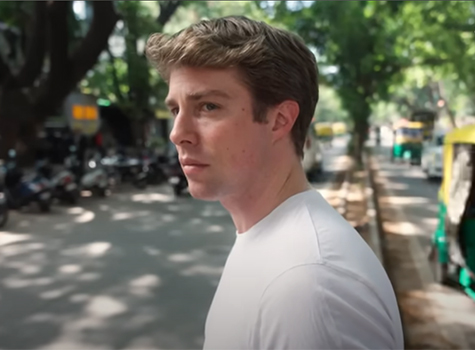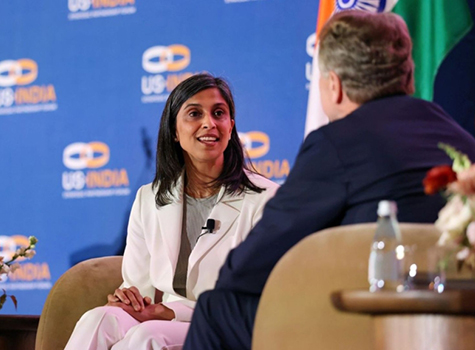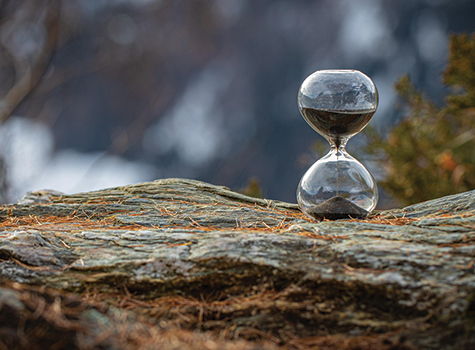By Samir Shukla
The group approached the old neighborhood. The “pol” as it is called in India. Pols are older parts of cities and towns where the houses are stacked next to each other and tightly wound alleys lead into the interior. Cameras were clicking and recording while bits of memory spilled out of the mouths of the older family members. “This is where I used to play cricket.” “Uncle so and so lived here.” Some houses were so dilapidated that a strong push could have knocked them down. Others were torn down and rebuilt, bright, clean, and contemporary.
The group was a gang of family members, most from the States, that had converged onto this particular “pol” in December 2016. The neighborhood was Mehta Pol, the group was my family members. We had gathered in the city of Vadodara for a three-day Maha Rudra Yagna in respect of Dadaji, my paternal grandfather, who was a learned and highly respected Brahmin priest in town.
One of my uncles organized the event, which took much planning and scheduling. A big portion of my parivar shuffled schedules, adjusted vacation days, and headed to Vadodara for a few days.
Parivar means “family” in many Indian languages. The word can denote your immediate family as well as the family of humans in the world at large. In the busyness of our daily lives, it is difficult to gather even the nearby family members for events, let alone members of the extended family. I cherish our annual summer family reunions on both sides of my family, as it is the only times of the year we see some family members. If not for these reunions, years may pass before we meet some family members.
I await the reunions of this summer.
Last December was unique, the once in a lifetime gathering that year marked the 100th birth anniversary of my Dadaji. In remembrance, many family members, from the States and India, gathered. Many relatives and friends, unseen or unmet in years, some in decades, converged. New connections were made, fading connections were reconnected. The added benefit was the gathering happened in India, specifically in Vadodara in Gujarat, my paternal hometown.
This morning the agenda was to visit the old family house in Mehta Pol. The home is now owned by someone else who lives next door, owns both houses, and uses our old house for storage. The home is in sad shape, the lower level dark and crumbling, and the stairs too rickety to ascend to the upper floors. Its denizens, my dad and his siblings, moved out and on years ago. No one wanted to sell the house until my grandmother passed away a few years back. It was her simple wish to not sell the house as long as she was still alive.
Among my memories is my grandfather sitting on the swing in the living room in the middle floor of the three-story house. I played on that swing with younger siblings and cousins, trying to make it touch the ceiling in our swinging abandon.
Dadaji and Baa (grandma) raised six kids in that house. Most of those siblings, their kids, spouses, nephews, and nieces, and grandkids had now gathered this morning at the old house. Memories of those who once lived there spun around on their smiling and wistful faces. Their eyes gave away the emotions of what once was and reckoning with how time realigns lives, dismantles old homes. In our contemporary mobile societies, visiting such long-held family homes creates warmth, a sense of belonging and beginnings, and the inevitable endings.
Dadaji, better known as Somnath Shukla, lived the simple life of a Brahmin priest. He was an expert in Vedic rituals and philosophy, a master of Sanskrit who composed many slokas and sayings. His life was limited due to the onset of blindness in his mid-life. He was born June 1916, hence the century mark of remembrance by those gathered last December. He would have been 101 this June. He passed away in 1977.
The sights, sounds, scents, the encompassing aura of India colored the occasion of the home visit as well as the Maha Rudra Yagna, which was conducted by many Brahmins who were the children of Dadaji’s contemporaries and even some disciples. They attended and performed the yagna with deep respect for Somnath Sastri. All family and friends, who attended, reconnected, laughed and cried, transported back to a once familiar time, if only for a few moments.
Reunions and family gatherings offer precious days when disparate lives are merged to exchange stories, catch up on lives lived, meet the new arrivals into the family, and remember those that have passed.
The threads that tie contemporary families can be thin, often stretched across the globe, but when gatherings such as this occur, some of these threads become stronger and weave a greater familial fabric.



